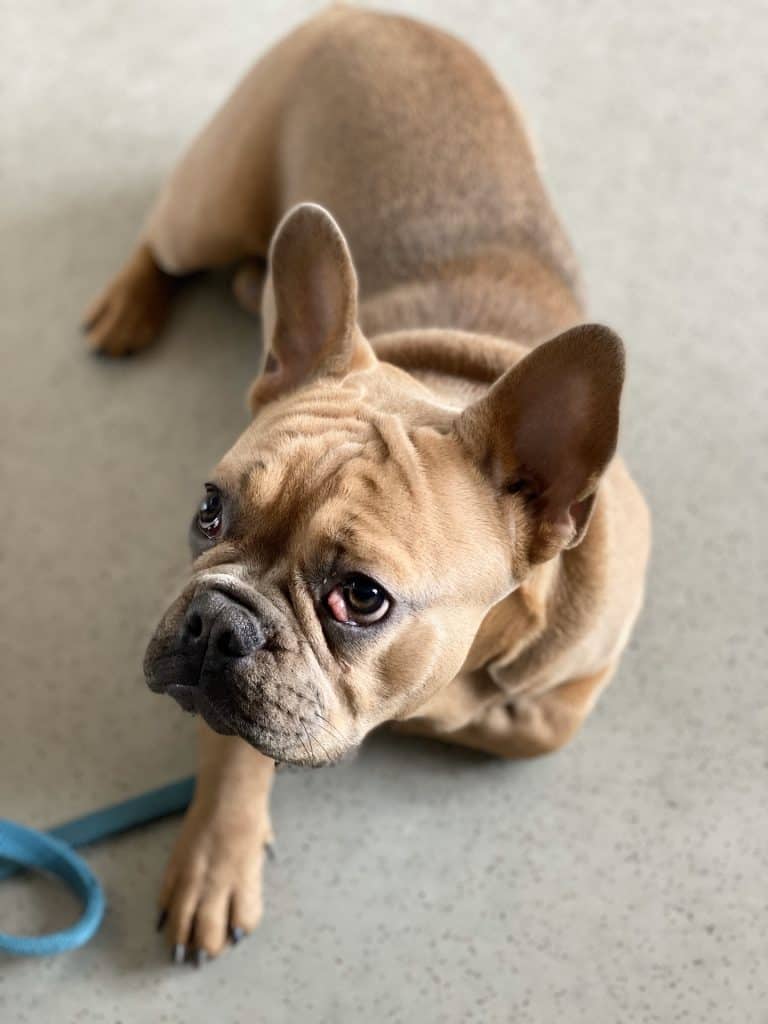French Bulldogs are a popular breed of dog known for their affectionate nature and adorable looks. However, they are also prone to several health issues, with intervertebral disc disease (IVDD) being one of the most common. IVDD is a condition that affects the spinal cord and can cause a range of symptoms, from mild discomfort to complete paralysis. In this article, we will discuss some preventative measures that can be taken to reduce the risk of IVDD in French Bulldogs.
Table of Contents
How to Prevent IVDD in French Bulldogs
1. Maintain a Healthy Weight
Maintaining a healthy weight is one of the most critical factors in preventing IVDD in French Bulldogs. Overweight dogs are more likely to develop spinal problems, including IVDD, because excess weight puts additional pressure on the spinal column. To keep your French Bulldog at a healthy weight, provide them with a well-balanced diet and plenty of exercise.

2. Exercise Regularly
Exercise is essential for maintaining your dog’s overall and spinal health. Regular exercise can help to strengthen the muscles and support the spine, reducing the risk of spinal injuries. However, ensure you don’t over-exercise your French Bulldog, as this can also increase the risk of spinal problems. Always consult with your veterinarian to determine the appropriate level of exercise for your dog’s age and health status.

3. Provide Supportive Bedding
The bedding your French Bulldog sleeps on can also play a role in preventing IVDD. Soft, unsupportive bedding can put additional strain on your dog’s spine, so provide them with a supportive bed. In addition, look for a mattress that offers plenty of cushioning and support, and make sure it’s large enough for your dog to stretch out comfortably.

4. Avoid High-impact Activities
High-impact activities, such as jumping or playing rough, can increase the risk of spinal injuries and exacerbate existing spinal problems. So while your French Bulldog needs to get plenty of exercises, try to avoid activities that involve high-impact or sudden movements. Instead, opt for low-impact activities, such as swimming or short walks.
5. Monitor Their Activity
Monitoring your French Bulldog’s activity can help you to identify any potential issues before they become serious. For example, if you notice that your dog is hesitant to move, has difficulty standing up, or is showing signs of pain or discomfort, take them to the vet as soon as possible. Early intervention can help to prevent further damage and improve the chances of recovery.
6. Be Mindful of Their Spinal Health
While it’s easy to overlook your French Bulldog’s spinal health, be mindful of this area of their body. Make sure to handle your dog gently and avoid putting pressure on their spine, particularly when lifting or carrying them. Regular checkups with your veterinarian can also help to identify any issues early on, so be sure to schedule annual appointments for your French Bulldog.

7. Consider Supplements
Supplements can also play a role in preventing IVDD in French Bulldogs. Glucosamine and chondroitin supplements are commonly used to support joint health, while omega-3 fatty acids can help to reduce inflammation and improve overall health. However, talk to your veterinarian before giving your dog any supplements to ensure they are safe and appropriate for your dog’s health status.
8. Avoid Excessive Stress
Stress can also play a role in developing IVDD in French Bulldogs. Excessive stress can cause the muscles to tighten, which can put additional pressure on the spine. To reduce your dog’s stress levels, ensure they have plenty of opportunities for relaxation and play, and try to avoid stressful situations whenever possible.

9. Spay or Neuter
Another preventative measure for IVDD in French Bulldogs is spaying or neutering. Studies have shown that spaying and neutering can reduce the risk of specific health issues, including spinal problems. This is because spaying or neutering can help regulate hormone levels, which can help reduce the risk of IVDD.

10. Avoid Breeding from Dogs with IVDD
If you are a breeder of French Bulldogs, it’s important to avoid breeding from dogs with a history of IVDD. IVDD is a hereditary condition, so dogs with a family history of it are more likely to develop it themselves. By only breeding from dogs that are free from IVDD, you can help to reduce the risk of the condition in future generations.
11. Consider Surgery
If your French Bulldog does develop IVDD, surgery may be necessary to correct the problem. A range of surgical options is available, including traditional open surgery and less invasive procedures, such as laser surgery. Your veterinarian can recommend the most appropriate course of action based on your dog’s needs.

12. Monitor Post-surgical Recovery
If your French Bulldog undergoes surgery for IVDD, closely monitor their post-surgical recovery. Make sure to follow all post-operative instructions provided by your veterinarian, including medication schedules, rest requirements, and follow-up appointments. By providing your dog with proper care and monitoring their recovery, you can help to improve their chances of full recovery.

Conclusion
In summary, preventing IVDD in French Bulldogs requires a multi-faceted approach that includes maintaining a healthy weight, regular exercise, avoiding high-impact activities, monitoring your dog’s spinal health, and being mindful of their stress levels. Additionally, spaying or neutering, avoiding breeding from dogs with a history of IVDD, and considering surgery if necessary can also help to reduce the risk of the condition. By following these preventative measures and providing your French Bulldog with the proper care, you can help to ensure that they live a happy, healthy, and comfortable life.

